Lost Legacy – Probate
After Essie Walker died in the summer of 2019, it wasn’t long before people started eyeing her house.
Thomas Moore, a man with no ties to the family, submitted court papers to take control of her estate less than a year after the 84-year-old woman’s death. He later sold her home in Las Vegas’ Historic Westside for less than what was owed on the mortgage.
But people who worked on the case earned more than $20,000 in attorneys fees, real estate commissions and administrator fees, and the buyer flipped it within months for more than $90,000 above his purchase price.
Walker’s son, Robert Lee, was told he could get some money through the case and got on board with Moore’s efforts almost a month after Moore sought court authority to take over the estate.
But Lee and his wife, Veronica Gisendaner, said they didn’t receive a dime.
“We feel like we got screwed,” Gisendaner said.
Clark County probate court has for years been a lucrative arena to profit off the dead. A cottage industry of private administrators, real estate agents, lawyers and house-flippers reaped hefty paydays selling homes across Southern Nevada after the owners died. The probate cases routinely started without family involvement and ended with nothing for heirs, a Las Vegas Review-Journal investigation found.
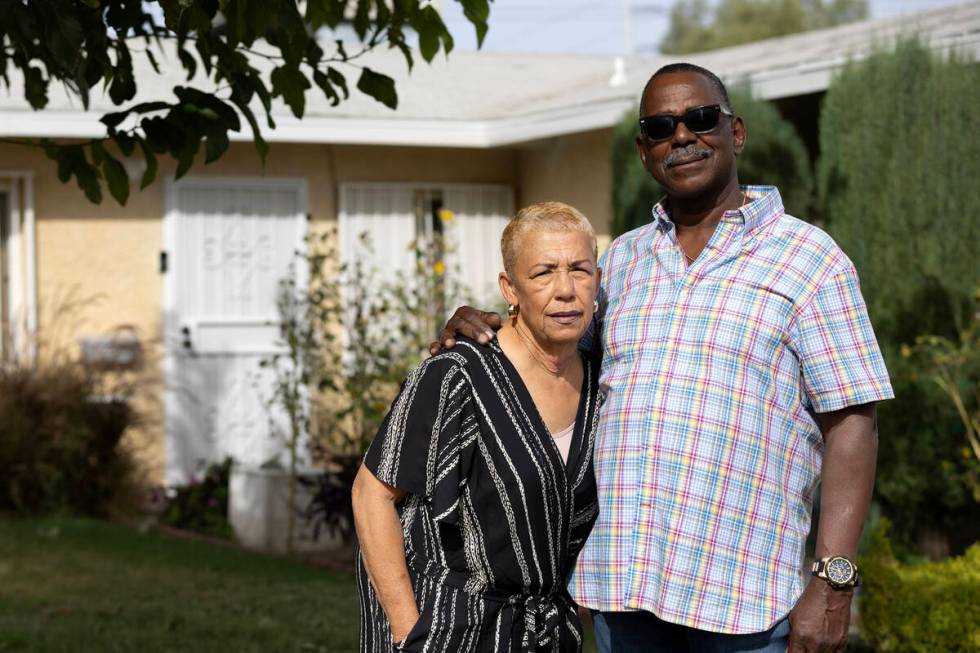
In Nevada, virtually anyone could swoop in to sell a dead person’s house with limited court oversight. Two prolific private administrators — Moore and his probate successor, Cynthia “Cyndi” Sauerland of Compass Realty & Management — intervened in hundreds of families’ inheritances, filing more than 500 probate cases combined since 2016.
They initially claimed in nearly 400 probate cases that they couldn’t identify or communicate with heirs, and they obtained court authority more than 460 times to sell homes through a process that doesn’t require court approval of the deal or competitive bidding that could boost the sales price.
The duo frequently sold homes at steep discounts to estimated value — often to the same circle of investors who resold the properties within months. Their three biggest buyers flipped more than 130 homes for $13.4 million above their combined purchase price, the newspaper’s eight-month investigation found.
In almost 300 cases, Moore reported he was unable to recover any money for heirs, often because he sold homes for less than what was owed on the dead owner’s mortgage in lender-approved “short sales.” Other times the homes went into foreclosure.
Still, his casework paid out more than $2 million in real estate commissions, $1.2 million in attorneys fees and more than $300,000 in administrator fees.
His cases also cranked out at least $1 million for vaguely defined services that other real estate agents and probate lawyers had never heard of, the Review-Journal found.
Casework
Thomas Moore of Estate Administration Services and his probate-work successor, Cynthia Sauerland of Compass Realty & Management, collectively managed hundreds of probate cases in Clark County District Court.
Here are ten of them.
Sources: Clark County District Court; Clark County Assessor’s Office; Zillow
‘A service to the community’
Moore, Sauerland and their associate Adam Fenn of Compass — who bought at least two dozen homes through probate from Sauerland and flipped most of them — contend they are solving the problem of abandoned housing.
Many of the homes they sold were vacant, at risk of foreclosure and trashed by squatters, they argue.
“It’s a service to the community,” Sauerland said. “It’s not just, ‘Everybody’s running around making money.’”
Fenn said that many heirs had washed their hands of the situation and that his team brings them peace of mind. He also said his group helps neighbors who have to live near problem homes.
“This is something we feel we’re the solution for,” he said.
But their business practices have faced sharp criticism.
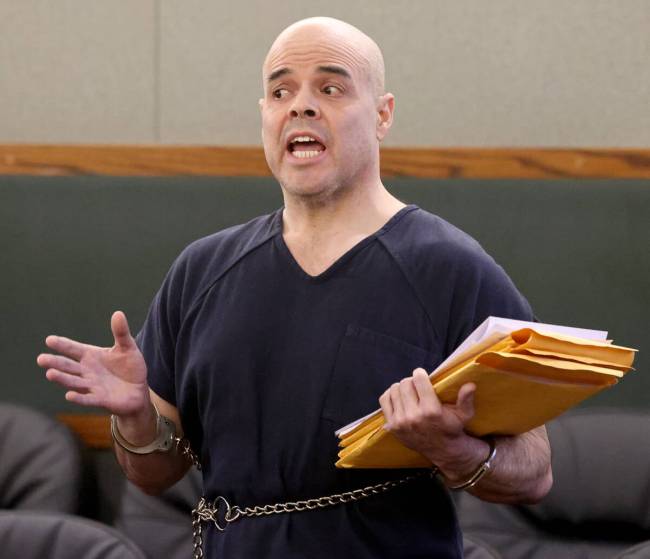
A lawyer for a family that sued Moore called him a “predator” who “tries to take properties away from families.” A judge also told Sauerland’s attorney to furnish invoices to prove his payment for a case wasn’t too high, and she ordered an investigation to see if Compass should forfeit its fees.
“I have a problem with what’s been going on here,” District Judge Jessica Peterson said in court in 2022.
A typical administrator should preserve money, pay bills and distribute what’s left to the family, said John Midgett, president of the National Association of Estate Planners and Councils.
After the Review-Journal outlined its findings for him, he said it seemed like Las Vegas’ system was being used for personal gain.
“It sounds shady to me,” he said.
Former Clark County Public Administrator Robert Telles was a frequent critic of Moore’s and Sauerland’s and often objected to their attempts to get cases, court records show. He also lobbied state legislators to change probate laws, saying there were cases where equity for family members and others was “washed away” by third parties, whom he did not name.
Telles also had complained to the Nevada attorney general’s office in 2019 that Moore was allegedly defrauding families and mortgage companies in probate matters. But investigators deemed it “unlikely” that Moore intentionally devalued properties, and they found no evidence of criminal activity or intent.
Moore is a businessman who wants to liquidate properties “in the most efficient way possible” and obtains permission from lien holders to short sell at “commercially reasonable” prices, the attorney general’s office said in a one-page report on the matter that the Review-Journal obtained through a public records request.
A few years later, when Judge Peterson ordered the investigation into Compass, she tasked Telles with running the inquiry.
About a month after the hearing, however, Telles was arrested on allegations that he murdered Review-Journal investigative reporter Jeff German, and he has been jailed ever since.
‘This isn’t a scheme’
Probate cases typically involve transferring ownership of a dead person’s house or other assets through court and settling their debts. The process can be avoided with proper estate planning, but, if not, state law provides a hierarchy of who can take control of the case.
The surviving spouse is first in line, followed by the dead person’s children, other family and government-run public administrator’s offices. Last on the 10-deep list is anyone “legally qualified” for the task.
It’s a low bar: Any adult in Nevada can manage a probate case if they are not a convicted felon. Potential administrators also could be blocked if they have a conflict of interest, are prone to “drunkenness” or exhibit a “lack of integrity,” state law says.
District Court officials imposed heightened scrutiny on private administrators in early 2023, requiring them to disclose in writing how they looked for relatives and to work with heirs when pursuing the independent probate route that Moore and Sauerland relied on.
But just a few months ago, Judge Peterson pointed to flaws in the system, vowing to find cases that were left open and unfinished.
In Nevada, almost any adult resident can take over and sell a dead person’s home if a family member does not claim the property in probate court.
To evaluate the impact of this practice, the Las Vegas Review-Journal tracked the outcomes of hundreds of probate cases handled by Thomas Moore and Cynthia Sauerland, two of Southern Nevada’s most prolific private administrators.
The newspaper obtained a public database of cases involving Moore and Sauerland from Clark County District Court. Two reporters inspected court filings in more than 500 cases that spanned from 2014 through 2023.
The newspaper also analyzed more than 350 home sales by Moore and Sauerland to determine if the properties were sold for more or less than the estimated values provided in court filings, which were typically drawn from listing sites such as Zillow or Redfin.
Reporters also read through title company settlement statements filed in court to determine the fees and commissions paid in the sales.
The newspaper also tracked who bought the homes from Moore or Sauerland, whether these buyers resold the homes, how quickly they did this, and how their sales price compared to their purchase price.
The Review-Journal also spoke with heirs to estates that Moore and Sauerland were involved with, and spoke with real estate agents, probate lawyers and other industry experts.
“This is not acceptable,” she said at a hearing in October. “People are taking administrator fees, and people are getting attorneys fees, and not doing anything to protect people.”
When a person dies, typically one of their relatives submits court papers to start a probate case, according to the State Bar of Nevada.
Sauerland, however, works with investors who scope out properties and then approach her and her legal team to obtain court authority to sell them, her attorney Christopher Wood once said in court.
Many homes tracked for this report were renovated, listing sites show, and Sauerland said she gets unsolicited emails from people thanking her for her work. She provided the Review-Journal with copies of several emails praising her efforts.
“This is what it all breaks down to: Helping the community and helping heirs — you know, of course, if you can find them,” she said.
Fenn insisted that other people don’t understand short sales or the complexity of his team’s work. He also declined to say how they find homes left by the dead, calling it a trade secret.
But Fenn said he used a similar business model in bankruptcy court before he ventured to probate.
“This isn’t a scheme,” he said. “We’ve been doing this for a long time.”
‘Very opportunistic’
State laws governing who can run probate cases vary across the country, said Midgett, of the national association.
Minnesota, for one, doesn’t have a “catch-all” provision like Nevada that lets virtually anyone manage a case, said Julian Zebot, chair of the trust and estate litigation group at Minneapolis law firm Maslon LLP.
Zebot said he wasn’t familiar with the business model of launching high volumes of probate cases and selling to flippers, and hopes he doesn’t see it in his area.
“It sounds very opportunistic,” he said.
Henderson attorney Elyse Tyrell, who has almost three decades of probate experience, said she had never seen administrators who were strangers to families open cases until Moore and Sauerland came along.
As she sees it, administrators shouldn’t be able to interject themselves in such estates, and there’s only one reason to do it: to make money.
“I can’t imagine any other motive,” Tyrell said.
At the hearing where an attorney called Moore a predator, Moore’s lawyer Patrick Chapin disputed the notion that his client did anything unlawful.
In that now-settled case, a family sued Moore after he obtained court authority to manage the estate of Tsoghik Khachatryan, a 30-year-old mother of three who died of an apparent brain aneurysm.
Her husband, their kids and other family stayed in the home she owned in western Las Vegas, but they were forced out after Moore landed control of Khachatryan’s estate several years after her death, court records show.
The family was allowed back in and kept the house, and Moore withdrew from the probate case after the husband sought to manage it himself. The family later sued Moore and others involved with the case and eviction, claiming their “true motive” was to take over the house and “enrich themselves.”
“It may be a distasteful business for some people. They may not like it — it’s similar to the payday loan business — but it is the law that was followed here,” Chapin said in court.
Moore declined to comment on the case, as did Michael McNerny, a lawyer for Khachatryan’s family.

‘They were entrepreneurial’
Fenn said his team brings peace of mind to heirs who have a difficult situation on their hands.
He also said his group helps people who live near homes that could be vandalized or face other problems. Fenn and Sauerland showed numerous photos of dilapidated properties to the Review-Journal during an interview in Compass’ office.
“You’re never going to hear one neighbor scrutinize anything we do because we’re doing something so good for them,” Fenn said.
When Sidney Vengrow died at age 81, the former casino dealer left a condo in Henderson that was later found to have a water leak and widespread mold, soaked carpets and algae growth, court records show.

Moore sold the unit in 2019 for $52,250 to frequent probate buyer Gary Wilson, who flipped it less than a year later for $170,000. A listing on Zillow shows that the condo was renovated.
Steven Vengrow, the former owner’s nephew, said his uncle didn’t have any kids, and when he was contacted about the probate case, it sounded fishy. Vengrow didn’t get any money from the sale, nor did he expect to, and he harbors no hard feelings.
“I give them credit,” he said. “They were entrepreneurial.”
Not everyone offered that outlook. Interior designer Susan Heath regained control of her mom’s estate after Sauerland took charge. She told the Review-Journal the whole experience was bizarre.
Her mom, Helen Meyerson, died at age 96 in 2020. When Sauerland filed court papers the next year to manage the estate, she stated that she was unable to communicate with Heath.
Wood, Saurland’s attorney, later said his client had been in contact with Heath, who, he added, did not want to manage the case.
District Judge Gloria Sturman put Sauerland in charge. But a few weeks later, Heath’s attorney filed court papers saying his client had not been aware of the case and wanted Sauerland out.
The judge granted her request.
“I didn’t know Cynthia-whatever from a hole in the ground,” Heath said.
Heath sold her mom’s house in Summerlin this past November for $415,000, records show. She expects to receive some money through the case, but not much, she said.
Still, she’s glad she took charge of the estate.
“It was pretty weird the other way,” she said.
‘Make probate a breeze!’
Moore, founder of Estate Administration Services, generated more than $900,000 for heirs across roughly 30 cases, including a few that produced over $100,000 each, the Review-Journal found.
But more often than not, court records show, heirs didn’t get any money from his sales.
He claimed or indicated in more than 90 percent of nearly 350 petitions for cases that the homes were underwater, meaning the mortgage debt outweighed the property value.
He ultimately reported some 160 short sales that generated no proceeds for heirs, records indicate.
Clear Counsel Law Group, which represented Moore in almost all of his cases, declined to comment.
Moore said in court papers that he “passed the torch” for his probate work in 2020 to Sauerland, whose website touts compassionate oversight of cases and promises to “make probate a breeze!”
The Review-Journal could not tally how much money heirs received from her casework. Sauerland’s court filings often did not explicitly say how much money went to heirs, and in other cases, there were no court filings about the home sale at all.
Sauerland initially said in almost half of her petitions tracked for this report that the estate had an estimated net value of approximately $0.
Wood, her attorney in 150-plus cases, did not respond to requests for comment.
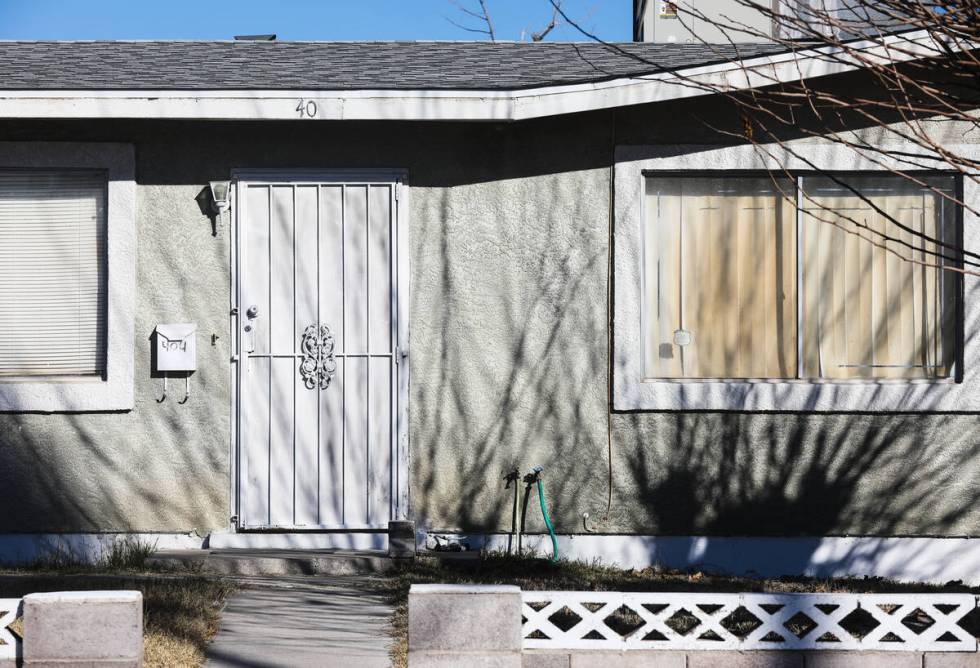
Family not found
On many occasions, family members nominated Moore or Sauerland to run their relatives’ probate cases. But the pair routinely initiated proceedings in court without family approval and often secured their participation when the case was already underway, court records show.
In nearly 79 percent of his petitions to claim cases, Moore did not identify any known heirs, or he named them but stated he could not communicate with them, the Review-Journal found.
For Sauerland, that figure was 70 percent.

The relatives often lived locally. In dozens of cases where Moore and Sauerland initially claimed they could not communicate with heirs, the relatives’ listed address was the same as the dead homeowner’s, court filings show.
In one case, Moore filed court papers to manage Eddie Buford’s estate two years after she died at age 81. Neva Buford was listed on the death certificate as the informing party and had the same North Las Vegas address, though Moore stated that he was unaware of the nature of their relationship.
Turns out she was her daughter.
“This person was listed on the death certificate at the very address at which they’re saying, ‘Oh, we don’t know anything about it,’” then-Probate Commissioner Wesley Yamashita said in court in early 2020.
Neva Buford had moved in with her mom years earlier to care for her and was by her side the morning she died in the house, she told the Review-Journal.
She figured at first that she’d keep the home in the family. She later signed a document nominating Moore to run her mom’s probate case two months after he had launched it.
He eventually sold the house to frequent buyer Wilson in a short sale that left no assets for heirs, court records show.
Wilson flipped it six months later for almost $115,000 above his purchase price. A listing on Zillow shows that the 1960s-era home featured new cabinets, countertops, flooring and other upgrades.
Neva Buford, who said she received more than $1,000 from Compass to help with moving costs, didn’t know the house had been flipped until the Review-Journal told her, saying it made her feel sick.
She said she had grown up in the house, and it was treated as a “piece of money.”

‘We’re not in the business of harassing someone’
Fenn said that figuring out where people live isn’t the hard part and that his team has field-services personnel who visit properties and knock on doors. But actually talking with heirs is another issue.
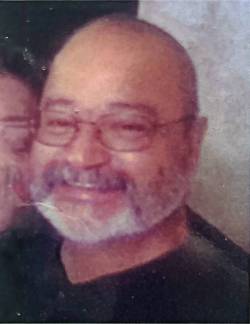
“We’re not in the business of harassing someone, like calling them 85 times saying, ‘We’re trying to clean up the mess here,’” he said.
In the probate case for Mario Leon, a welder and pipefitter born in Cuba, Moore filed a petition for his estate the year after he died.
He claimed that Leon’s house was underwater and that his two adult children could not be contacted. Moore sold the house to Wilson, who flipped it several months later for $125,000 above his purchase price. It is not clear if any work was done to the property before the flip.
Leon’s daughter Brittany Simonelli, reached by the Review-Journal, confirmed that she received no money from the probate sale.
She had not wanted to be financially responsible for the home. Among other factors, she was pregnant at the time of her dad’s death, and his house was a mess.
Part of her felt fine that someone else took on the headache of dealing with the property, but it also was a head-scratcher that a stranger could even take on the task.
‘You don’t just put this on the market’
In many cases, Moore and Sauerland’s sales also were followed by quick flips.
Wilson, of GMW LLC, purchased at least 67 homes from Moore and resold all but three within a year. His median purchase price was $150,000, while his median flip price was over $240,000, property records show.
Another frequent buyer, Avi Segal, flipped nearly 40 homes he purchased from Moore. His median flip price, $249,000, was more than $100,000 above his median purchase price.
In one case, Moore even sold a house to an entity called We Flip It LLC. True to its name, the buyer sold it less than a week later for almost $30,000 above its purchase price.
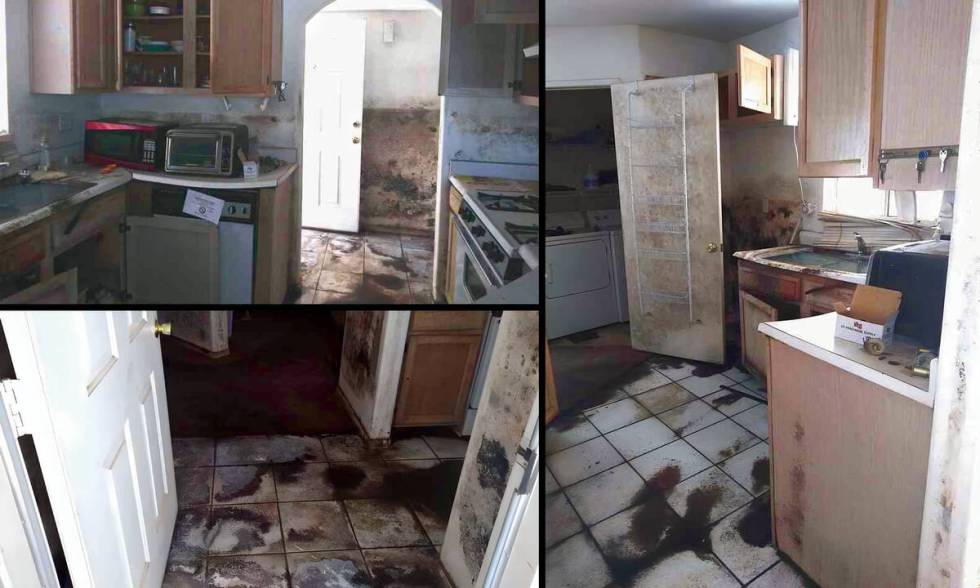
Tyrell, the lawyer, said the fact that two buyers alone purchased roughly 100 homes from Moore “absolutely smells.”
“If they’re all being flipped, clearly they’re … not all dead ends,” she said.
Sauerland noted that buyers might have to spend a fortune to renovate these homes.
“So really, what is the profit margin for the flipper?” she said. “Probably not double.”
Neither Wilson nor Segal could be reached for comment.
Fenn said a typical buyer might have to jump through numerous hoops to purchase a home, and if they can’t close the deal, both sides will have wasted time.
But when he buys the home, the process is “extremely efficient.”
He acknowledged that listing a typical sale could draw more buyers and boost the price but added that his probate work doesn’t deal with regular real estate.
“It’s in insurmountable distress,” he said. “That’s kind of what we’re solving here. You just don’t put this on the market.”
Contact Eli Segall at esegall@reviewjournal.com or 702-383-0342. Segall is a member of the Review-Journal’s investigations team, focusing on reporting that holds leaders, businesses and agencies accountable and exposes wrongdoing. Davidson was the Review-Journal’s data/watchdog editor.
Review-Journal investigations editor Art Kane and investigative reporter Briana Erickson contributed to this report.



















